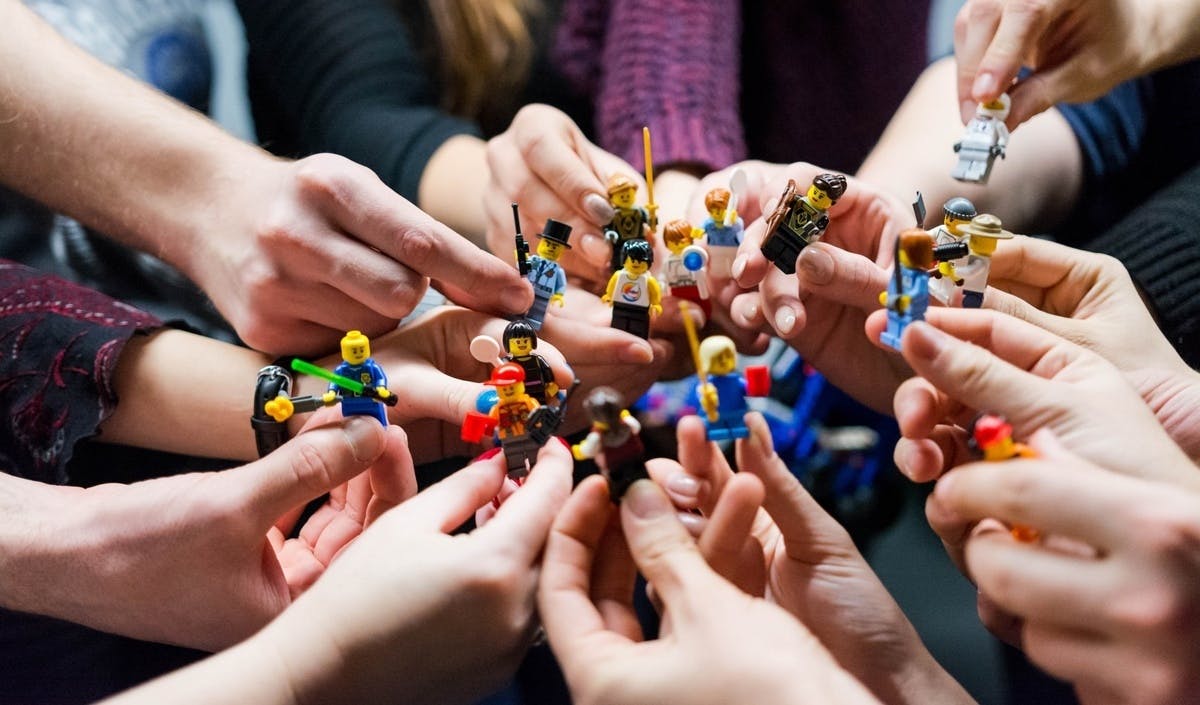

December 15, 2021
The disruptive mindset of Work Happiness
This article tries to introduce how traditional HR roles are transforming into more people and teams-oriented positions or complemented by functions that highlight wellness as a core need to facilitate company goals joyfully.
People & Ops
Some jobs seem to pop up suddenly as society evolves, but they've silently taken shape and waited their turn. Social needs emerge, become visible, and reflect a change that – intentionally or subconsciously – requires new approaches and solutions, as is the case for my role.
Since I've dedicated myself to Corporate Happiness, I usually get a lovely "flabbergasted smiley expression" when I tell people what I do. I work in a very revolutionary deep-tech startup, Wasmer, as an Operations and People Happiness Manager.

This article tries to introduce how traditional HR roles are transforming into more people and teams-oriented positions [1] or complemented by functions that highlight wellness as a core need to facilitate company goals joyfully.
Successful companies of the future won't be able to attract, retain and promote talent by throwing money or infusing substantial monetary incentives for candidates and staff. Unless employees contribute, grow, develop, create and interact in a healthy, productive way, organizations are in danger of losing their central resource: talented people. Inquiring creative minds require a profound sense of happiness in their job, or they cannot settle and be satisfied with their work. I am talking about the many professionals who need more than economic survival to work. Expansion is the wise natural impulse of human beings, although this potential can hide under thick layers of fears and conditioning. In this case, expanding means exploring, growing along with others, and having fun along the way: to work joyfully.
Building the culture
Work is still considered a burden in some cultures (and by "culture," I mean both society and company culture). Some companies may be superficially applying wellness, with many isolated specific actions; for example, company Christmas dinners or related big celebrations, don't necessarily mean that employee wellness is in the company's DNA and practices daily. A comprehensive happiness approach requires regular actions that reflect core values, resulting in consistency over time. Culture is a constant. Otherwise, the company can have two significant events in a year but be partially or entirely unaware of a dormant state of dissatisfaction. We might be working with unconscious negativity and burnout one day. We must get to the core values of a company and its people to create the fundamentals of culture for everyone to develop and share their best, so the company can shine. We need to build systems accordingly, with sincere awareness, healthy expectations, and caring.
There is no makeup here.
Overcoming resistance
Implementing a Happiness and Wellness Culture can be romantic or counterintuitive for some organizations. These ideas sometimes awaken the conflict between productivity and wellness, not only in managers but also in our inner beings. But thinking about the team and how we do what we do is maybe one of the best ways to overcome challenges and difficulties in a collective project.
Suppose such a conflict emerges in the company or within us. In that case, the opportunity arises to identify our limited concepts to select what mindsets serve us happiness and which one is causing us pain. There is a lot of work to do. The evidence shows that wellness, creativity, and productivity can work together and are integral to a good result. That's why I say Company Happiness is a disruptive and paradigm-changing view.
In all organizations with human interaction, we can expect conflicts, misunderstandings, and changes in the mood. We all contend with our inner chaos, so don't underestimate the group effect for the good and the bad. Once we consider this, it may be beneficial to foresee and take care of everybody's mental wellbeing and implement fundamental tools as part of the company policies. While transitioning to the happiness paradigm, a joyful way of working is at the core of the company vision and team management. However, happiness managers must prepare for and overcome the biggest challenge, managers' skepticism.
We sometimes have to display figures and graphics to stimulate new perspectives due to the conscious or subconscious conflict between productivity and wellness mentioned above, but not my case. Before meeting Wasmer's CEO Syrus Akbary in person, I found his article "Achieve your goals, happily" with curiosity, and I immediately thought there could be a vision match. It was the case. Since I joined Wasmer, we have been working closely together defining company values accurately, communication, team building, and an overall wellness plan we will share soon.
The best is yet to come
We CHOs (Chiefs Happiness Officers) are visionaries and somehow stubborn, like CEOs are in some aspects. It comes with the role. We must prioritize purpose over fear to resolve conflicts, promote cohesion and serve team and company expectations. I don't consider ourselves idealists, but we are neutral-optimistic. By this, I mean we analyze the whole picture, including the unpleasant aspects, and focus on solutions with a positive view. We know things can be different, healthy, and fun, and we work with enthusiasm.
Our resilience resides in believing in the capabilities of humankind to learn, transform and collaborate. There is a lot of happiness, balance, and personal and team growth in the future of successful companies and organizations.
I will continue sharing my thoughts about implementing this People and Happiness view at Wasmer in the upcoming articles. This is the beginning of an exciting journal. I am looking forward to sharing more ideas and topics, stay tuned. ;)
About the Author
People and Ops. I love encouraging people, teams, and innovative projects to reach their full potential and shine.
People & Ops
**This article tries to introduce how traditional HR roles are transforming into more people and teams-oriented positions [[1]](#people) or complemented by functions that highlight wellness as a core need to facilitate company goals joyfully.**
Building the culture
Overcoming resistance
The best is yet to come
Deploy your web app in seconds with our managed cloud solution.
Read more

peoplehappinessgrowthcompany culturewasmer teamcultureresilience
The gems of uncertainty: The major fear that trains us
June 9, 2023
peoplehappinesswasmer teamculturespanishpeople culture
La felicidad laboral, un modelo de pensamiento disruptivo
December 15, 2021
wellnessremotepeoplehappinessculture
Fundamentals of Company Culture for Remote Teams
November 14, 2023
wellnesspeoplecultureconflictawarenesswork happiness
Conflict in the Workplace: from Clash to Awareness and Growth
May 31, 2024